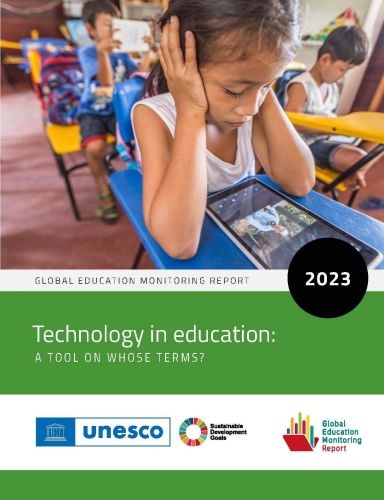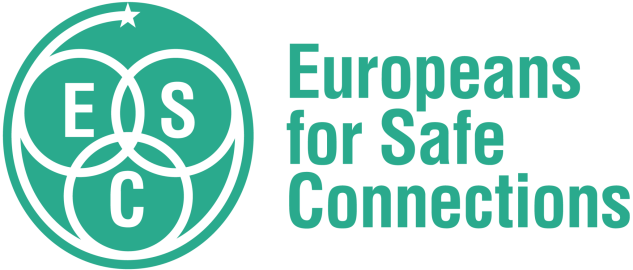
Report on Global Technology in Education
This Global Education Monitoring Report has been prepared by an independent team hosted by UNESCO. It was released in 2023. The report is designed to give an overview of how the countries are doing with regard to implementing the UN Sustainability Development Goals (SDG), especially SDG 4, which is: “Ensure inclusive and equitable quality education and promote lifelong learning opportunities for all”.
The report is very thorough. It examines educational results involving technology from all around the world, and its conclusions are much nuanced. Technology in schools is not promoted as the great solution to all school problems, which is a great relief compared to the attitude of some educators at the advent of the new technology 20-30 years ago: It would definitely save the education system from poor readers, poor grades, bored pupils, school dropouts and last but not least, boring teachers.
The report is critical and highlights a good degree of scepticism towards ICT and AI in education. In the light of the ever increasing dependency in our young ones on digital media, the ESC welcomes this report.
Technology use in Schools
Under the heading, Can technology solve the most important challenges in education? it is noted that even though the adoption of digital technology has resulted in many changes in education and learning, it is debatable whether technology has transformed education as many claim. The application of digital technology varies in all countries and evidence is mixed as to its impact.
Further the report underscores “the importance of learning to live both with and without digital technology; to let technology support, but never supplant, the human connection on which teaching and learning are based. The focus should be on learning outcomes, not digital inputs. To help improve learning, digital technology should be not a substitute for but a complement to face-to-face interaction with teachers.”
Personalized Learning
The buzzword in learning is personalized. Texts and tasks must be adapted to the student’s level and capabilities and what’s not to like with the upcoming AI tools and constant development of online programs that promise to facilitate individual learning? But the report warns us: Very often, this powerful hope leads us to forget the fundamental social and human dimension that lies at the heart of education. It is worth reiterating the obvious: no screen can ever replace the humanity of a teacher. As underlined in the UNESCO ‘Futures of Education’ report, published in 2021, the relationship between teachers and technology must be one of complementarity – never of substitutability.
Connectivity
Another buzzword at this point in time is connectivity. The EU is rolling out new legislation, which will facilitate high speed connectivity. In a new EU law, called the Gigabit Infrastructure Act (GIA), the EU aims to harmonize and make connectivity easy and smooth. All should be able to enjoy their “digital rights”, meaning the “right” to be online 24/7. The key point is to facilitate connection to get everything installed, cells, cables, routers etc., and the goal is that we all get cheaper and faster access to it all. Read more here.
But again the report warns us: Even if connectivity was universal, it would still be necessary to demonstrate, from a pedagogical point of view, that digital technology offers real added value in terms of effective learning, especially at a time when we are all becoming aware of the risks of excessive screen time.
Privacy and Bias
The report also raises the concern of privacy: “Despite the desire to make education a global common good, the role of commercial and private interests in education continues to grow, with all the ambiguities that entails: to date, only one in seven countries legally guarantees the privacy of educational data.”(Foreword)
Artificial intelligence presents additional risks for bias: “Far from being fair and objective, algorithms carry the biases of their developers and can reproduce or deepen inequality, especially in terms of discrimination.”
A crude example is given: “When examinations had to be suspended in the United Kingdom due to COVID-19, algorithms were used to predict scores, which had grave consequences. Public school students received grades lower than what they expected and lower than those in smaller private schools, leading to major questions about accountability and the ethics of such predictive systems (Kolkman, 2020.” (page 151)
An earlier UNESCO Report, 2021 UNESCO Recommendation on the Ethics of Artificial Intelligence, calls for a robust policy and legislative framework along with ethical oversight (UNESCO, 2021).
Key messages and interesting take-aways
Good, impartial evidence on the impact of education technology is in short supply.
A survey of teachers and administrators in 17 US states showed that only 11% requested peer-reviewed evidence prior to adoption [of new technology]. A lot of the evidence comes from those trying to sell it.
Education technology should focus on learning outcomes, not on digital inputs.
In Peru, when over 1 million laptops were distributed without being incorporated into pedagogy, learning did not improve. In the United States, analysis of over 2 million students found that learning gaps widened when instruction was exclusively remote.
It can have detrimental impact if inappropriate or excessive.
Large-scale international assessment data, such as that provided by the Programme for International Student Assessment (PISA), suggest a negative link between excessive ICT use and student performance. Mere proximity to a mobile device was found to distract students and to have a negative impact on learning in 14 countries, yet less than one in four have banned smartphone use in schools.
Technology is often bought to plug a gap, with no view to the long-term costs… for example for children’s well-being.
Almost one sixth of countries have banned smartphones in schools. Children’s data are being exposed, yet only 16% of countries explicitly guarantee data privacy in education by law. One analysis found that 89% of 163 education technology products recommended during the pandemic could survey children. Further, 39 of 42 governments providing online education during the pandemic fostered uses that risked or infringed on children’s rights.
ESC: We welcome the report
The Europeans for Safe Connections warmly welcome this report although it has a somewhat narrow focus. We do agree with the basic principles of the report but we would add also our concern about the issue of radiation, which we mention in the blog article written earlier by ESC, “Europeans for Safe Connections call for stronger regulation of wireless internet in schools“
Our children have a right to learn under good conditions and in healthy environments and should be able to concentrate well without the distraction of omnipresent screens and EMF radiation.
Using the insights of Professor and psychiatrist Manfred Spitzer, we want to point out that the basis of learning is always in the real world, not the virtual one. No insight can emerge unless a relationship is first established with tangible reality. The teacher is indispensable in this process.
ESC member Petra Bertova from Slovakia said in a recent podcast, NowMore:
“Children need real people and the real world for a healthy development. For learning, the brain needs to use the physical experience of the real world. Screens don’t give children this experience. They give an artificial two dimensional or three dimensional representation, but children can only understand them when they already know them from their own real life experience. Children simply need more contact with reality away from the screens – a real learning environment, not the virtual learning environment. In real life you simply do not have 7 lives.”
Finally, this report might be of help for electro-sensitive children. But let us not forget that it is in the interest of everyone’s health to limit exposure to radiation.




